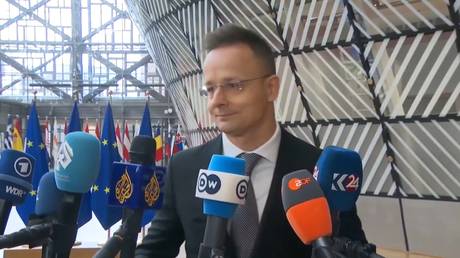
The bloc has delivered only around 30% of the shells that it promised to send to Kiev by next March, the report says
The EU is struggling to make good on its promise to supply Ukraine with one million artillery shells by next spring, Bloomberg reported on Thursday, citing sources.
The deal to prop up Kiev with the massive amount of ammunition – touted by EU’s top diplomat Josep Borrell as “historic” – was first reached in March this year. Under the plan, the bloc pledged to deliver artillery shells to Ukraine over the course of 12 months by tapping into its stockpiles and placing joint orders.
However, according to Bloomberg’s sources and documents seen by the agency, although more than six months have passed, the EU has so far missed the mark, having delivered only 30% of the target amount. Based on the volume of contracts, the bloc’s members risk failing to provide Kiev with one million shells by March, the report says, adding that several EU members have privately asked Brussels to extend the deadline.
The US, which has also been trying to increase its ammunition output to support Ukraine, has urged the EU to step up its efforts on this front, the report says.
While EU nations have been reluctant to publicly disclose specific details of deliveries and contracts, some have shared figures privately at closed-door meetings, Bloomberg reports. In all, about a dozen countries, including Germany, the Netherlands, Poland, and the Baltic states, have delivered or are planning to deliver a combined total of about 300,000 to 400,000 shells, according to the report. Several other countries are said to have placed orders worth more than $50 million, with production set to start next year.
In recent months, various media reports have indicated that both the US and the EU are struggling to provide Ukraine with much-needed ammunition amid its counteroffensive against Russia, which has failed to gain any significant ground.
Meanwhile, fears that Kiev could receive less aid from its Western backers have been fueled by the decision by US President Joe Biden to drop Ukraine assistance from a funding bill earlier this month to avoid a government shutdown. In addition, one Bloomberg source did not rule out that the ongoing Israel-Hamas conflict could also affect the volume of aid to Ukraine.
Russia has repeatedly warned the West against providing military aid to Ukraine, saying it would only prolong the conflict and make it a direct participant in the hostilities.




